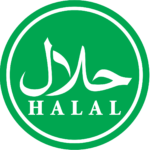Halal certification is an essential aspect for Muslims when it comes to consuming food, beverages, and products. The term halal translates to “permissible” or “lawful” in Arabic. It signifies items that align with Islamic law as outlined in the Quran and hadith. Halal certification ensures that the products meet these religious guidelines and provides peace of mind to Muslim consumers who follow these dietary and lifestyle restrictions. In this article, we will explore the meaning, importance, and process of halal certification.
What is Halal Certification?
Halal certification is an official declaration from a recognized authority or certification body that verifies a product meets the standards of halal practices. These standards are based on Islamic law, which governs various aspects of daily life, including diet, behavior, and even business transactions. For food items, halal certification ensures that the ingredients used, the preparation process, and handling meet specific halal criteria.
For example, halal food must avoid ingredients such as pork, alcohol, or other forbidden substances. In addition, the method of slaughtering animals must comply with Islamic guidelines. Therefore, halal certification guarantees that consumers are purchasing products that align with their faith.
The Importance of Halal Certification
1. Religious Significance
For Muslims, consuming food and products that are halal is crucial. Not adhering to halal guidelines can result in the consumption of haram (forbidden) items, which can lead to spiritual consequences. By ensuring that products are halal certified, consumers can trust that they are following the proper dietary and lifestyle practices as prescribed by Islam.
2. Global Demand and Market Expansion
The global demand for halal products has grown significantly, especially as the Muslim population continues to rise worldwide. Halal certification not only allows companies to cater to this demand but also opens doors to new international markets. Many non-Muslim consumers are also becoming more interested in the transparency and ethical standards associated with halal-certified products.
3. Ethical Considerations
Halal certification also includes ethical standards, such as animal welfare. Halal slaughter methods emphasize minimizing animal suffering, which is increasingly important to consumers worldwide who prioritize ethical sourcing. By obtaining halal certification, businesses can assure consumers that their products are produced with a commitment to humane treatment.
The Halal Certification Process
The process of obtaining halal certification typically involves several key steps:
1. Application
A company or manufacturer must first apply for halal certification from an accredited halal certification body. There are many recognized certification bodies globally, each with their own set of criteria and standards.
2. Documentation and Review
The application process includes submitting detailed documentation about the ingredients, sourcing, manufacturing processes, and business practices. The certification body will thoroughly review these documents to ensure that all standards are met.
3. Inspection and Auditing
The certification body may conduct an on-site inspection or audit to ensure that the company’s practices align with halal requirements. This might involve checking the facility, reviewing production processes, and verifying that halal practices are being followed.
4. Approval and Certification
Once the inspection and review are complete, and the company meets all halal requirements, the certification body will issue a halal certificate. This certificate may need to be renewed periodically, depending on the certification body’s rules.
5. Ongoing Compliance
After receiving halal certification, the company must continue to adhere to halal standards. Regular audits and inspections may take place to ensure compliance is maintained.
Key Terms Related to Halal Certification
- Haram: Refers to things that are forbidden in Islam, such as pork, alcohol, or improper slaughtering methods.
- Zabiha: Refers to the method of slaughtering animals in accordance with Islamic law, where the animal’s blood is drained from its body.
- Tayyib: Refers to purity and cleanliness. This principle extends beyond food and applies to all goods and services.
FAQ about Halal Certification
What does halal certification ensure?
Halal certification ensures that a product service complies with Islamic laws and is safe for Muslim consumption. It verifies that all ingredients, manufacturing processes, and ethical practices meet halal standards.
Can a non-Muslim company get halal certification?
Yes, non-Muslim companies can apply for halal certification as long as they meet the required standards. In fact, many non-Muslim companies seek halal certification to tap into the growing Muslim consumer market.
Is halal certification required for all food products?
While it is not mandatory for every food product to be halal certified, it is important for Muslim consumers. Many countries have halal certification as a voluntary process, but it is vital for those who follow halal dietary practices to ensure their food products meet the necessary standards.
How long does it take to get halal certification?
The time it takes to obtain halal certification varies depending on the company, the certification body, and the complexity of the process. On average, it can take several weeks to a few months to complete the application, review, and inspection process.
Can a halal product become non-halal?
Yes, a halal-certified product can become non-halal if it undergoes changes in ingredients or production processes that no longer comply with halal standards. Regular audits help ensure compliance, but any significant changes must be reviewed and re-certified.
Halal certification plays a significant role in helping Muslim consumers navigate the marketplace with confidence. As the global demand for halal products continues to rise, the importance of ensuring products adhere to Islamic dietary laws becomes increasingly vital for both consumers and businesses.

